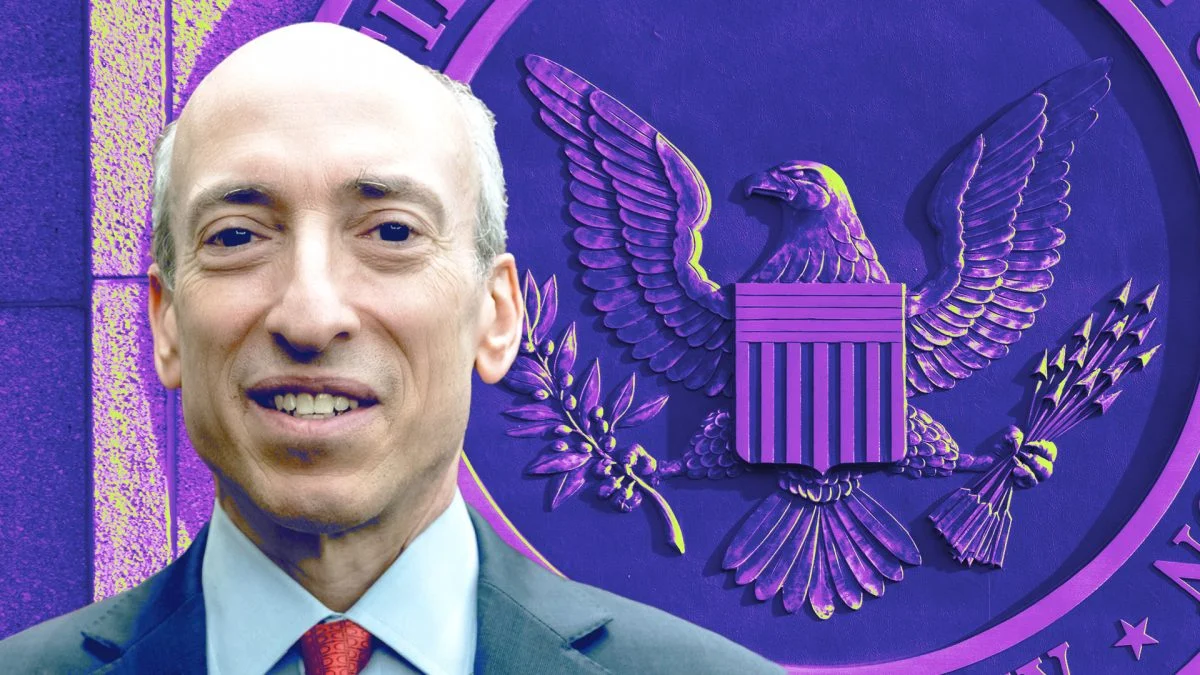CIC Research: The "Dollar-Libra" System May Create the Next Peak of US Dollar Hegemony
The Libra white paper from Facebook in the United States shows that Libra uses a linked exchange rate system, and its smart contract features make cross-border payments, financial contracts and even the global business ecosystem possible. Libra's potentially large user base is based not only on Facebook's 2.4 billion global users, but also on the 1.7 billion adults who are still outside the financial system.
We believe that if Facebook's Libra cryptocurrency is successful, it will not only penetrate the cross-border payment and financial contracts, but also combine with the Fed's legal currency power to form a broader and stronger "US-Libra" global monetary and financial system. . Despite the progress made in the internationalization of the renminbi, it is in danger, and China and Europe should be wary of a dollar system that is likely to be stronger than it is today. For countries outside the United States, central banks, large financial institutions, and multinational Internet companies all theoretically have the potential to issue similar Libra cryptocurrencies.

1. Libra currency is not a US dollar, but it can be a global currency using a linked exchange rate system.
- Should the loss of $23 million in cryptocurrency due to the theft of the SIM card, should not blame the telecommunications company?
- The latest evaluation of the blockchain by 11 national leaders and politicians, or the future global regulatory “wind vane”
- Director of the Institute of Financial Law of the Central University of Finance and Economics: the circumstance of digital currency issuance
Libra's white paper and annexes repeatedly argued that “no monetary policy”, “not a central bank”, “coexistence with other legal tenders”, but still caused heated discussion among regulators and market participants. In order to avoid repeating the high volatility of Bitcoin and Ethereum, Libra chose the stablecoin form, which endorsed the bank deposits and short-term government bonds denominated in a basket of developed countries' legal tenders, as stated in the white paper attachment. It is almost equivalent to Hong Kong's Currency Board System (CBS), which is the linked exchange rate system. see picture 1.

As one of the three major financial centers in the world, Hong Kong's issuance is supported by a certain percentage of US dollar foreign exchange reserves. Its exchange rate is stable at around HK$7.80/US dollar, which is in exchange for a stable exchange rate and capital at the expense of abandoning independent monetary policy. The trade flow is highly free. Therefore, Libra will not have an independent monetary policy and will not be able to perform the duties of the traditional central bank, but there is still a linked exchange rate system similar to CBS.
From the main functions of currency trading media, wealth storage, value scales , etc., digital cryptocurrencies such as Bitcoin have been controversial. The main criticisms focus on the high volatility of cryptocurrency (see Figure 2) and the lack of national credit endorsements. aspect. On the one hand, Libra coins attempt to solve the problem of high volatility by using the linked exchange rate system. In theory, as long as sufficient underlying currency reserves are guaranteed – this also makes it difficult for Libra's monetary authorities to provide last lender of resort. It can guarantee the low volatility of Libra coins under normal market conditions. When the economic crisis comes, it is difficult to get rid of it. On the other hand, the US dollar is endorsed by the US federal government, taxed as a guarantee, cash in circulation and bank reserves are the debt of the Federal Reserve, and Libra can only be regarded as a Facebook company with a market value of at least 550 billion US dollars. Credit endorsement of its co-sponsors. However, if Libra coins can achieve low volatility and control supply as the white paper envisages, it satisfies the stability and scarcity requirements of money. As for the currency characteristics such as detachability, portability and durability, it is digital currency and The only advantage that needs to be tested is the degree of acceptance. In this sense, Libra currency is not a US dollar, but it can become a global currency.

From the perspective of the functions of the monetary authority , Libra's management institutions cannot adjust interest rates or inflation levels like the Fed and the European Central Bank, but their global currency characteristics are different from those of small economies that use the linked exchange rate system. In Hong Kong, for example, if the Fed raises interest rates when Hong Kong's economy is weak, the Hong Kong Monetary Authority can only passively follow, otherwise the arbitrage will impact the Hong Kong dollar exchange rate. Libra coins are linked to a basket of developed countries' currencies, which is equivalent to passively inheriting the monetary policy of the corresponding countries, and is a monetary policy that mainly inherits the largest share of the underlying reserve currency, such as the US dollar and the euro.
From the perspective of a basket of currencies, you can compare the Special Drawing Rights (SDR). As a supplementary reserve tool provided by the IMF to member countries, SDR is based on US dollars (41.73%), Euro (30.93%), Renminbi (10.92%), Japanese Yen (8.33%), and British Pound (8.09%). The five legal currency combinations are not currency or credit to the IMF [1]. The disclosure of the white paper indicates that the Libra currency will be based on a basket of currencies, but not limited to specific member states, nor is it merely a supplementary reserve tool, so it is fundamentally different from SDR.
Libra's CBS mechanism design explains the Fed's unexpected wait-and-see attitude and even a positive attitude. Some even regard the Fed as Facebook's "collusion". After all, in the unstoppable situation, what is better than letting a US company take the lead and implement CBS? Does the system reassure the Fed? The concerns expressed by the European Central Bank and other European monetary authorities are not difficult to understand. Europe’s missed mobile Internet wave has negatively transmitted the competitiveness of consumption and manufacturing. It is now possible to be more passive in the euro and payment system. Slow step by step. Americans rush to run, Europe lacks the same size Internet giant as Facebook, China's strong supervision of digital cryptocurrency not only makes the domestic encrypted digital currency exchanges fall apart, but also makes BAT and other companies only hope to sigh.
Second, Libra is not just a cross-border payment, it is also carrying more possible ecosystems.
The first sentence of the body of the white paper is "…a new decentralized blockchain, a low-volatility cryptocurrency, and a smart contract platform…". The decentralized blockchain is the underlying technology foundation of Libra. The low-volatility cryptocurrency leads to Libra's CBS currency management mechanism, while the smart contract platform implies a business ecosystem.
Smart Contracts, also known as Blockchain 2.0, can encapsulate logic that represents or has rights and/or obligations. Building a DApp (Distributed Application) will be a natural thing for Libra. An analogy that may be less accurate but more intuitive is WeChat. Small program. The current smart contract applications are limited, mostly in the financial, social, gaming, exchange, gaming and other fields, but this limitation can easily be subverted in front of Facebook with huge traffic.
Smart contracts are not the first of its kind, but Libra is both a smart contract and a stable currency, and Facebook's 2.4 billion global user base (see Figure 3), born from a technical and commercial perspective. According to the white paper, there are still 1.7 billion adults still outside the financial system, but most of these people have mobile phones or Internet connections. This huge group of potential users, financial institutions are difficult to obtain through traditional means, and as a co-sponsor of Libra, financial institutions can act as resellers to expand their business efficiently and conveniently. It is worth pointing out that perhaps a non-financial company like Facebook can lead many financial institutions to cooperate with each other. After all, head financial institutions such as JPMorgan Chase and UBS are also acting alone or jointly, but their impact is not as good as Facebook's Libra.

Cross-border payments are the primary application direction pointed out by the Libra white paper . Currently, financial institutions that are co-sponsors are mainly payment institutions such as MasterCard, VISA, and Paypal. Paypal and VISA processing capacity are 193 pens and 24,000 pens per second. Based on the free-performing (bitless currency) bitcoin and Ethereum network processing capacity are 7 pens and 15 transactions per second, respectively, and permission-based encryption. The Ripple and EOS network processing capabilities amounted to 1,500 transactions per second and nearly 3,000 transactions. The white paper emphasizes that the Libra blockchain will transition from the initial license chain to the free chain within 5 years after the public release, which means further decentralization and open diversity, but the free chain has limited processing capacity, and follow-up Facebook may further elaborate . (For details, please refer to CIC Research, “Bit-chain industry is active in venture capital, bubble and value coexist”, November 2018)
The smart contract feature of the Libra blockchain is suitable for over-the-counter derivatives and exchange trading . If the previous cryptocurrency was mainly due to the financing function of the first token issue (ICO), the smart contract feature of the Libra blockchain means that Libra-denominated futures, options, swaps and other contracts are possible. Smart contracts cannot be tampered with, auto-executed, and contract terms can be flexibly customized to reduce the credit risk of over-the-counter transactions, or to facilitate joint offers or even trades between different trading venues. From this perspective, it should not be surprising if the Libra currency-denominated contract is popular. At present, you have not seen similar contracts denominated in cryptocurrency (note that the Bitcoin futures/options contracts on the Chicago Mercantile Exchange and the Chicago Board Options Exchange are based on bitcoin, not bitcoin), mainly encryption. Issues such as currency volatility and credit endorsements, and these issues are what Libra coins are expected to solve. The global market value of the over-the-counter (OTC) derivatives market is about $10 trillion, and the nominal principal is nearly $600 trillion, with interest rate derivatives accounting for the largest share (see Figure 5). These huge markets also hint at Libra's richness. The imagination of the space.

Further, the Libra currency-denominated financial asset system is at least theoretically possible . Under the premise of full acceptance of Libra currency, bonds such as bonds, equity, and physical assets denominated in Libra currency are possible, but subject to the supervision of governments, this process, even if it occurs, is bound to be long and tortuous. In some smaller or troubled economies, choosing Libra coins may be easier to win.
The ecosystem implied by smart contracts will be the same as the cross-border payment that the white paper points out to attract Facebook's vision. If financial institutions feel that the word Libra is as intimate as Libor, then Zuckerberg may have a starry sky like Libra.
Third, the challenges and opportunities presented by the Libra white paper
From the perspective of currency globalization or the business ecosystem, the Libra white paper represents trends and changes.
Due to the US SWIFT (Global Interbank Financial and Telecommunication Association) system, Germany, France, and the United Kingdom created INSTEX (Instrument for Supporting Trade Exchanges) to settle with Iranian trade. However, European attempts seem to have limited impact. If Facebook's Libra cryptocurrency is successful, it will be combined with the Fed's fiat currency power to form a broader and stronger "US-Libra" global currency circulation, settlement and payment system, and expand into the entire financial system. Although Facebook has established Libra's management entity Libra Association in Geneva, the information and code control of digital cryptocurrencies lies in the Internet rather than geographical location.
The “Dollar-Libra” system may create the peak of dollar hegemony that makes other countries more powerless. Once formed, the “US-Libra” system will help the US currency settlement payment system and financial services expand further to any network coverage area, including the 1.7 billion adults currently mentioned in the white paper that are still isolated from the financial system. It is worth noting that Hayek’s currency non-state theory is realized through blockchain technology. The most affected are not the euro, the renminbi, but the dollar, because only the Fed is the central bank of the central bank, if the cryptocurrency challenges the legal tender. The first thing that bears the brunt is the dollar. And Jerome Powell's statement means that the Fed is at least happy, that is, let the market players innovate, while taking on the risks brought about by innovation, the facts will consolidate the dollar status, and the waste is not the taxpayer's money . The dominant position of the US dollar in current international trade is shown in Figure 6.

At present, China should respond as early as possible in the market, and promote the Chinese version of Libra in China, the “Belt and Road” region and even Europe, and at the same time help the internationalization of the RMB. In May 2019, the renminbi maintained its fifth largest active currency in international payments for the seventh consecutive month, and its share rose from 1.88% in April to 1.95%, but this growth is based on the existing international monetary system. The -Libra system, or similar systems established by other US companies such as Microsoft and Google, will fail to reinforce the dollar system as long as it succeeds, and should be highly valued.
In terms of specific ideas, for countries outside the United States, central banks, large financial institutions, and multinational Internet companies are theoretically capable of issuing similar Libra cryptocurrency potentials. The analysis is as follows:
First, the central bank's advantage of issuing cryptocurrencies is that it can ensure the effectiveness of monetary policy, and endorsement of government credit can also achieve low volatility; the main challenge is that the cryptocurrency issued by the central bank is closer to the digitization of its legal currency, in the international It may be difficult to promote the country's fiat currency, but like Libra, it has to face the high-risk and time-requirement requirements of innovation, and it needs to consider whether it is compatible with the government's responsibilities and risk appetite.
Secondly, the advantage of issuing large cryptocurrencies by large financial institutions is that they are the main players in the financial market. The traditional business resources have obvious advantages and rich experience. The main challenge is that financial inter-bank competition may limit the formation of ecosystems, and the digital innovation capability is not the most financial institutions. Those who are good at, such as mobile payments, are worried about being a fashion IT company rather than a strong bank.
Finally, the advantage of multinational Internet companies issuing cryptocurrencies is that they have the same innovation strength, user base and risk appetite as Facebook, and can also act as the main body of the issuer and ecosystem (see Figure 7); the main challenge is that Internet innovation may be Financial stability and regulation put forward new requirements, so financial institutions are essential key players, not only to provide basic currency reserves to ensure stable exchange rates, but also to provide financial services as market makers and dealers, while central banks and other regulatory authorities can Better control the overall situation and wait for opportunities.

For China, there are central banks that attach great importance to cryptocurrencies, as well as multinational Internet companies such as Ali, Tencent, Bytes, and US Missions (unlike Europe, which lacks large multinational Internet companies). The main problem is decision making. In early July, the US House of Representatives worried that Libra might threaten US monetary policy and dollar status, and asked Facebook to suspend related work and hold hearings, which gave other stakeholders more time to think and respond. However, considering that the innovation cycle in the Internet era is as short as one or two years, the time left for others may not be much.
(The author of this article: CIC Research Institute provides independent, objective and forward-looking research support for CIC's strategic and internal investment decisions.)
Text / Sina Finance Opinion Leaders Column Investment Research
Write: Liu Wei
We will continue to update Blocking; if you have any questions or suggestions, please contact us!
Was this article helpful?
93 out of 132 found this helpful
Related articles
- QKL123 market analysis | Change soon, Bitcoin explores $ 9,000 again? (0723)
- The first Reg A+ ICO-based project, Blockstack, will go online in 3 months.
- Dialogue Vitalik: Most people are stuck in the system, and I live outside the system
- Uncontrollable burden, Circle will transfer the exchange business overseas
- Babbitt column | Libra: Premature baby in the context of Facebook innovators
- Rereading classics | Bitcoin and Libra, perhaps not the competitive currency that Hayek envisioned
- Bakkt saved Wall Street, not a cryptocurrency






